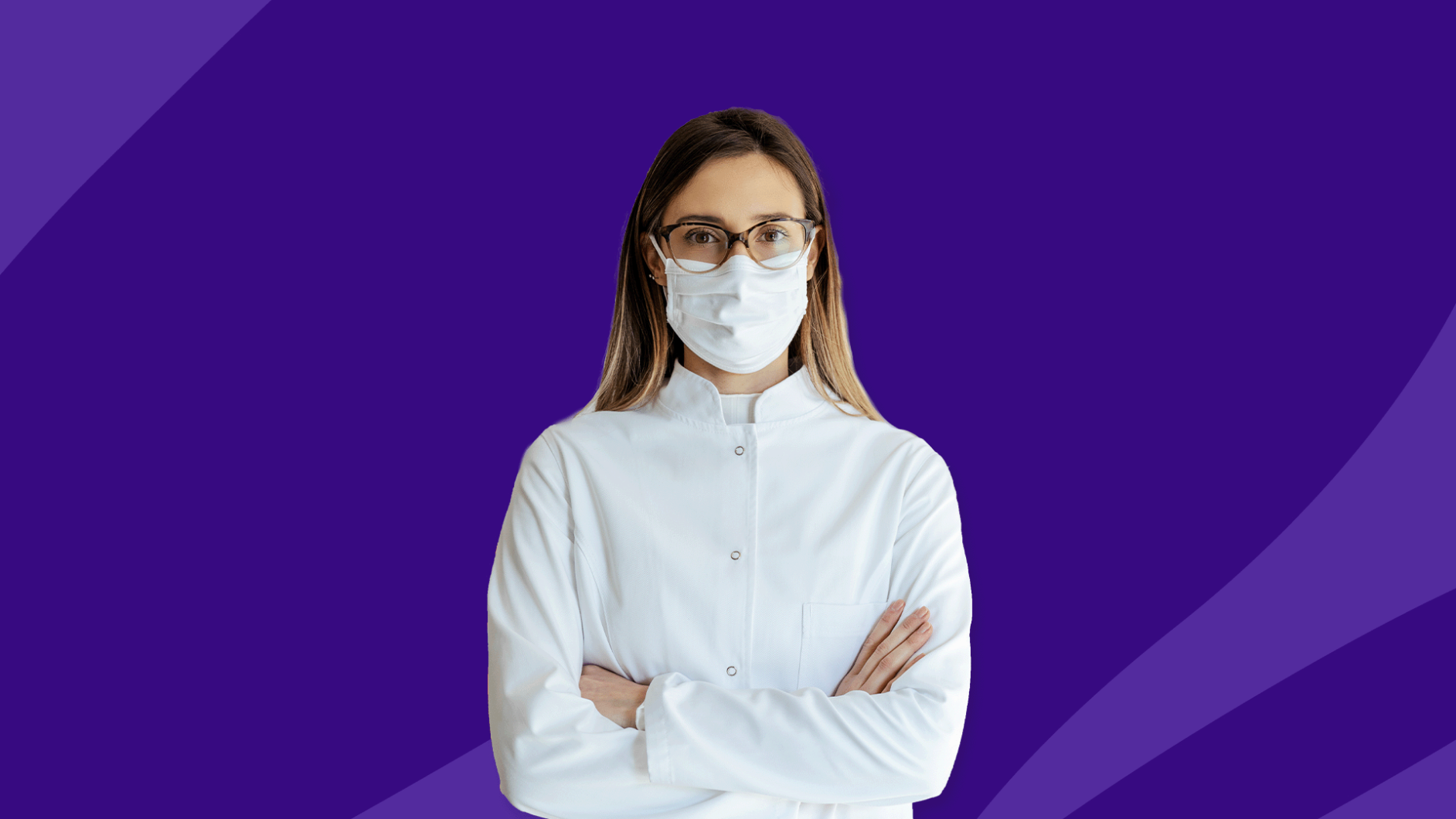Winter ushers in colder temps and celebratory get-togethers. But for pharmacy staff, it also means working in close quarters and coming into contact with sick people all day, every day. It’s likely you worry about staying healthy this time of year. Luckily, there are ways to avoid catching seasonal viruses such as colds, flu, COVID-19, and other illnesses in the pharmacy environment.
9 ways pharmacy staff can prevent illness
According to the U.S. Bureau of Labor Statistics, about 7.8 million workers missed work in January 2022 due to illness, injury, or a medical problem or appointment. This is more than double the amount (3.7 million) from January 2021. What’s more, about 4.2 million workers who usually worked full time, had to work part time, due to illness, injury, or a medical problem or appointment. This is also more than double the amount (1.8 million) from the previous January. But, with a few preventive steps, you can reduce your risk of becoming part of these statistics.
Here are some tips on reducing your chance of getting sick if you work in a pharmacy.
1. Wear a mask.
The COVID-19 pandemic taught us that masks work to prevent the spread of illness. For pharmacy staff working in close quarters, an N95 mask that fits properly can prevent you from accidentally inhaling airborne viruses that are expelled when sick people sneeze, cough, laugh, or even speak. According to the CDC, an N95 respirator filters out at least 95% of very small particles, including both bacteria and viruses, by forming a seal around the nose and mouth.
Some individuals may prefer a surgical mask, which does not form a seal around the nose and mouth. Worn properly, a surgical mask will block large-particle droplets, splashes, and sprays that may contain viruses and bacteria, from reaching the mouth and nose—and may decrease exposure of your secretions to other individuals. A surgical mask will not, however, filter very small particles in the air that can be transmitted by coughing or sneezing. They are not considered to provide complete protection, but any mask is better than no mask.
2. Wash your hands.
Make it a habit to wash your hands often with soap and water for at least 20 seconds. Or, use a 60%-70% alcohol-based sanitizer if soap and water are not available. This is especially important after coming in contact with high-touch surfaces, like doorknobs or shared workstations.
Proper handwashing can reduce the risk of respiratory illness in the general population by up to 21%. Because frequent handwashing can dry your skin, apply a moisturizer after washing and drying your hands (or after using hand sanitizer). Keeping travel-size tubes of hand sanitizer and moisturizer in your lab coat pocket or by your station, can help you remember to use them regularly.
You can get more information on proper handwashing from the CDC website, and you can also order promotional materials such as fact sheets, posters, and bathroom mirror clings, to post around your pharmacy.
RELATED: When and how to wash your hands
3. Clean common surfaces.
Surfaces that are frequently touched, such as countertops, phones, counting trays/spatulas, and computer keyboards, should be regularly disinfected. Although it may seem hard to fit extra cleaning into a day filled with vaccines, constant ringing phones, and multiple pages of prescriptions to fill, some staff members may jump at the chance to take a break from filling prescriptions to do some uninterrupted cleaning.
Since mobile phones carry 10 times more bacteria than most toilet seats, be sure to clean your own phone, too—just check the manufacturer’s website first, to be sure you are using the correct supplies. Some manufacturers, such as Apple, have very specific instructions on how to clean your devices.
4. Get your vaccines.
It’s easy to get so busy that you forget to get your own vaccines. But, it’s essential for pharmacy staff to get a yearly flu vaccine and make sure everyone on staff is up to date with COVID boosters. A pneumonia vaccine is important for adults older than age 65, as well as any staff members ages 19 to 64 who are immunocompromised or have diabetes or heart or lung conditions.
5. Eat a healthy diet and stay hydrated.
You don’t have to totally shun holiday treats, but try to eat a healthy diet the majority of the time. Choosing healthy foods can help control inflammation and strengthen your immune system. Load up on whole grains, fruits, vegetables, and nuts—while limiting processed, fried, sugary, and salty foods. Be sure to consume a variety of vitamins in your diet. It is thought that dietary vitamin C can boost your immunity. That means eating lots of citrus fruits like oranges and grapefruit, as well as peppers, strawberries, and spinach. If your diet is lacking in vitamin C or other nutrients, you can add supplements where needed. Also, drink plenty of water to maintain a healthy immune system.
6. Be conscious of alcohol consumption.
Enjoy some spiked eggnog on occasion (if it’s compatible with your medical conditions and medications), but if you want to avoid getting sick, limit alcohol consumption. Chronic alcohol exposure can affect immune system function, making you more likely to develop infections (and also increases the risk of cancer). People who do drink should limit alcohol intake to two drinks or less per day for men—or one drink or less per day for women. Be mindful of serving sizes, too. According to the National Institute on Alcohol and Alcoholism, one drink is considered 12 ounces of regular beer, 5 ounces of wine, or 1.5 ounces of distilled spirits.
7. Be sure to get quality sleep.
Sleep is critical to immune system function. About 70 million Americans have chronic sleep problems. Adults ages 18-60 need seven or more hours of sleep per night, while adults ages 61-64 need seven to nine hours per night, and adults 65 and older need seven to eight hours per night.
If you are having trouble sleeping, you can work on improving your sleep habits by making some of these lifestyle changes:
- Go to bed and wake up at the same time every day, even on weekends.
- Keep the bedroom quiet, dark, and at a comfortable temperature for sleeping.
- Do not use electronics in the bedroom—this includes not just TVs and laptops, but phones, too.
- Exercise during the day.
- Do not eat large meals—or consume alcohol or caffeine—before bed.
8. Exercise.
Regular exercise can strengthen the immune system, both during and after activity, so lace up those sneakers. Adults need at least 150 minutes per week of moderate-intensity physical activity, plus two days per week of muscle strengthening exercises. You can squeeze this in by walking for 30 minutes a day, five days a week, and adding two strength training days. You can walk outside, in a gym, or even around the pharmacy on your breaks. On your days off, select from thousands of free YouTube videos that offer walking (or other cardiovascular) workouts and strength training sessions.
9. Stay home when sick.
If you are sick, stay home. If others are sick, encourage them to stay home. Pharmacy staff members are tough as nails and stick together through thick and thin. No one wants to leave their colleagues understaffed and in a bind. However, your pharmacy family will thank you if you take a sick day, and avoid spreading germs.
Hopefully, by following these tips, you can stay healthy this season—and focus on helping your patients do the same.











